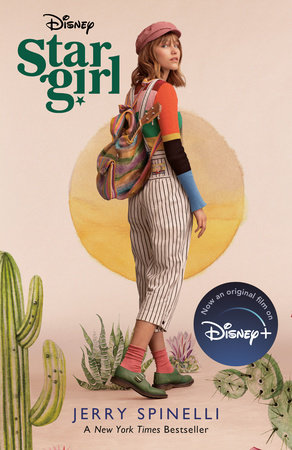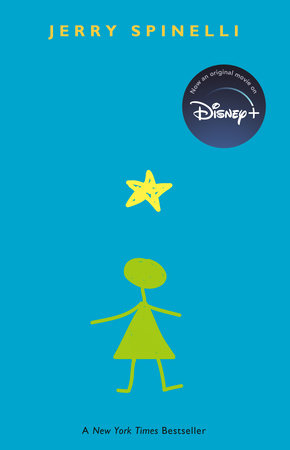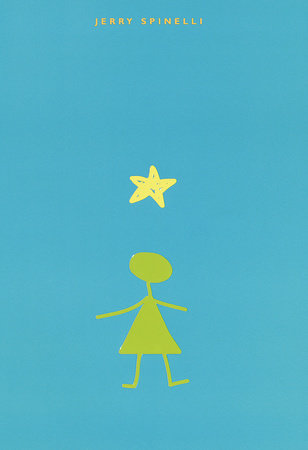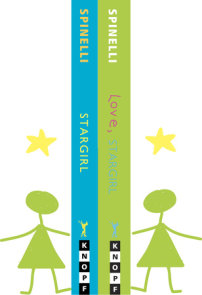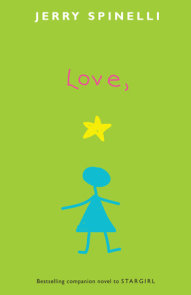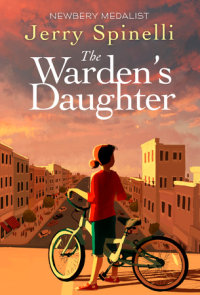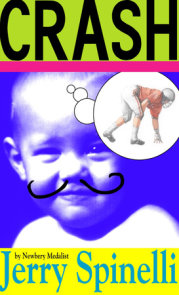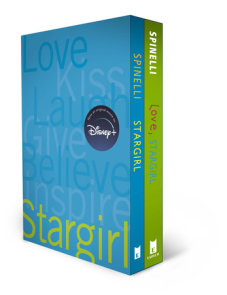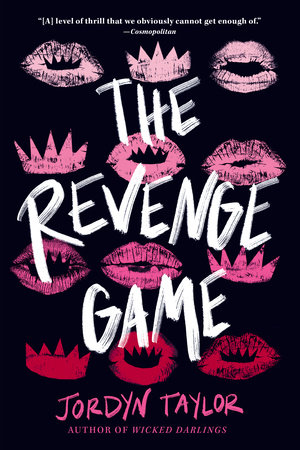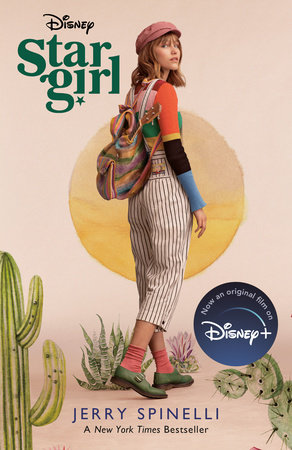

Stargirl Movie Tie-In Edition
By Jerry Spinelli
By Jerry Spinelli
By Jerry Spinelli
By Jerry Spinelli
By Jerry Spinelli
By Jerry Spinelli
By Jerry Spinelli
By Jerry Spinelli
By Jerry Spinelli
By Jerry Spinelli
By Jerry Spinelli
Read by John H. Ritter
By Jerry Spinelli
Read by John H. Ritter
Part of Stargirl Series
Part of Stargirl Series
Part of Stargirl Series
Part of Stargirl Series
Part of Stargirl Series
Part of Stargirl Series
Category: Teen & Young Adult Fiction | Teen & Young Adult Social Issues | Teen & Young Adult Romance
Category: Teen & Young Adult Fiction | Teen & Young Adult Social Issues | Teen & Young Adult Romance
Category: Teen & Young Adult Fiction | Teen & Young Adult Social Issues | Teen & Young Adult Romance
Category: Teen & Young Adult Fiction | Teen & Young Adult Social Issues | Teen & Young Adult Romance | Children's Picture Books
Category: Teen & Young Adult Fiction | Teen & Young Adult Social Issues | Teen & Young Adult Romance
Category: Teen & Young Adult Fiction | Teen & Young Adult Social Issues | Teen & Young Adult Romance | Audiobooks

-
$9.99
Mar 03, 2020 | ISBN 9780593179048 | Young Adult
-
$10.99
May 14, 2002 | ISBN 9780375822339 | Young Adult
-
$9.99
May 11, 2004 | ISBN 9780440416777 | Young Adult
-
$17.99
Aug 08, 2000 | ISBN 9780679886372 | Young Adult
-
Nov 13, 2001 | ISBN 9780375890024 | Young Adult
-
May 14, 2002 | ISBN 9780807205730 | Young Adult
265 Minutes
Buy the Audiobook Download:
YOU MAY ALSO LIKE
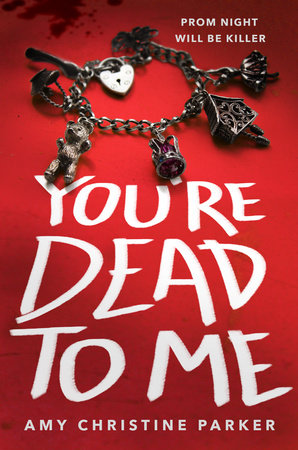
You’re Dead to Me
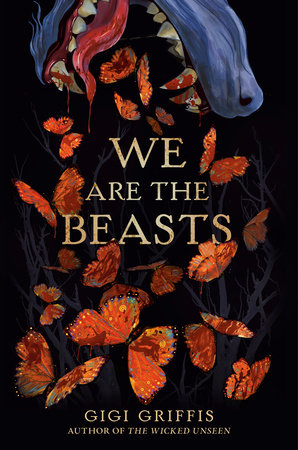
We Are the Beasts
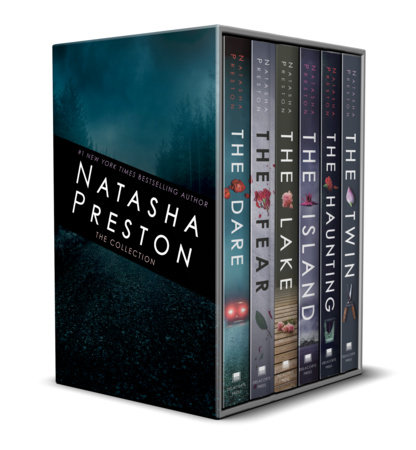
Natasha Preston Six-Book Paperback Boxed Set
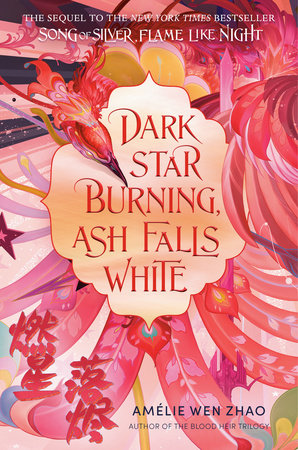
Dark Star Burning, Ash Falls White
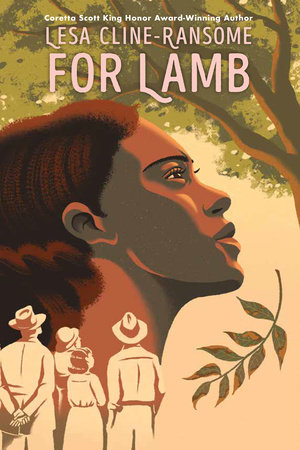
For Lamb
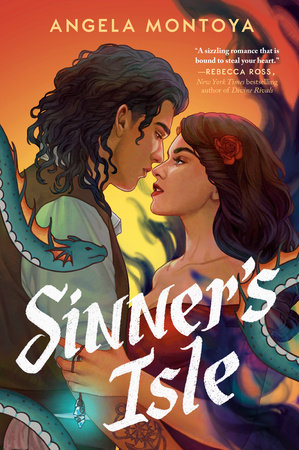
Sinner’s Isle
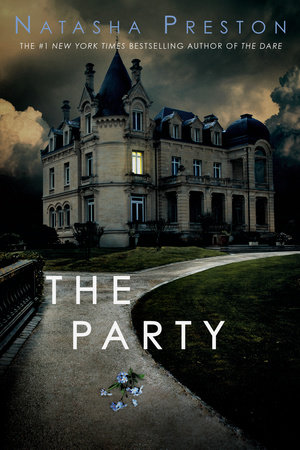
The Party
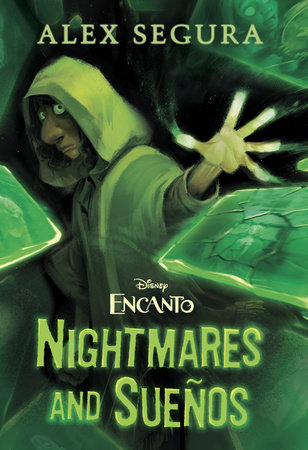
Encanto: Nightmares and Sueños
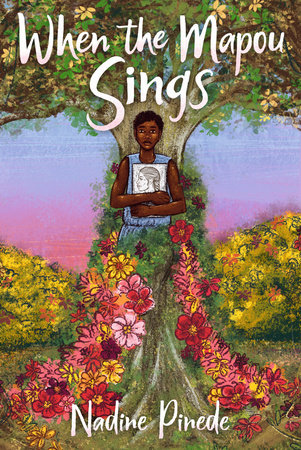
When the Mapou Sings
Praise
“A magical and heartbreaking tale.” —Kirkus Reviews, Starred
“Spinelli has produced a poetic allegorical tale about the magnificence and rarity of true nonconformity.” —The New York Times
“Part fairy godmother, part outcast, part dream-come-true, [Stargirl] possesses many of the mythical qualities of Maniac Magee.” —Publishers Weekly, Starred
“Stargirl is luminescent. . . . This book resonates long after the cover is closed.”—The Detroit News and Free Press
“Stargirl tells us the captivating story of a magical, mysterious girl. . . . A wonder tribute to nonconformity.”—Chicago Tribune
Awards
ALA Best Books for Young Adults WINNER 2001
Arizona Young Readers Award WINNER 2003
Indiana Young Hoosier Award WINNER 2003
Iowa Teen Book Award WINNER 2003
Kentucky Bluegrass Master List WINNER 2002
Maine Student Book Master List WINNER 2001
New Jersey Garden State Teen Book Award WINNER 2002
New York State Charlotte Award WINNER 2004
Pennsylvania Keystone State Reading Association Book Award WINNER 2003
Texas Lone Star Reading List WINNER 2001
Book Sense Book of the Year NOMINEE 2001
Illinois Rebecca Caudill Young Readers Award NOMINEE 2003
Maryland Black-Eyed Susan Award NOMINEE 2002
Massachusetts Children’s Book Award FINALIST 2003
Massachusetts Children’s Book Master List FINALIST 2003
21 Books You’ve Been Meaning to Read
Just for joining you’ll get personalized recommendations on your dashboard daily and features only for members.
Find Out More Join Now Sign In






